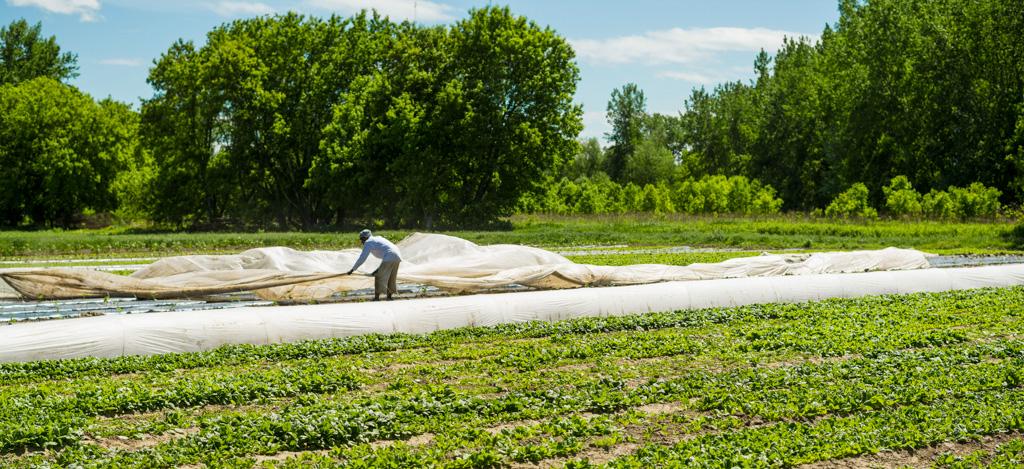At their spring meeting in Denver last month, the National Organic Standards Board (NOSB) heard from citizens, farmers and advocates on issues as narrow and specific as an annotation change for tocopherols on the National List, and as broad as hydroponic and container production in organic. NOFA-VT and Vermont Organic Farmers (VOF) provided comments to the NOSB, both in writing and in person, on several topics of concern to organic farmers and consumers here in Vermont, including hydroponics, biodegradable biobased mulch, and eliminating the incentive to convert native ecosystems to organic production.
If there is an issue that has singularly engaged the organic community here in Vermont of late, it is the allowance of hydroponic production in organic. NOFA-VT and VOF have long advocated for soil as the foundation of organic production, and did so once again before the NOSB in April. As the board moves toward a final vote on the issue at their fall meeting in Jacksonville, Florida, the discussion has turned toward specifically defining hydroponics, aquaponics, and aeroponics, as well as distinguishing more clearly between hydroponic and container production, a line that has up to this point been fairly blurred.
Another topic of interest to organic vegetable producers in Vermont (and likely elsewhere) is biodegradable biobased mulch. Biodegradable biobased mulch is approved for use in organic but only if it is 100% biobased - a standard that unfortunately no products on the market can currently meet. In the meantime, black plastic mulch is also allowed in organic production, and while its use avoids concerns about breakdown by-products remaining the soil, it also leads to an unfortunate amount of waste as it is torn out, put in landfills, and replaced year after year. While concerns about the impacts of biodegradable mulch on soil ecosystems are well-founded, we're hopeful that additional research or product development will advance to allow a more sustainable alternative for producers to retain heat and moisture and reduce weed pressure in their soils.
Finally, an interesting (and admittedly tricky) issue being considered by the NOSB is how to eliminate the incentive for producers to convert native ecosystems or high value conservation lands to organic production. Because a three-year transition period is required between the application of any prohibited substances and organic certification, native ecosystems (i.e. those not previously used for production) are at higher risk of being converted to organic farmland. Various countries and certification bodies around the world have developed ways to reduce this incentive - all of which the NOSB is currently studying.
To learn more about where NOFA-VT and VOF stand on these and other issues, please read our complete comments here (pdf).

